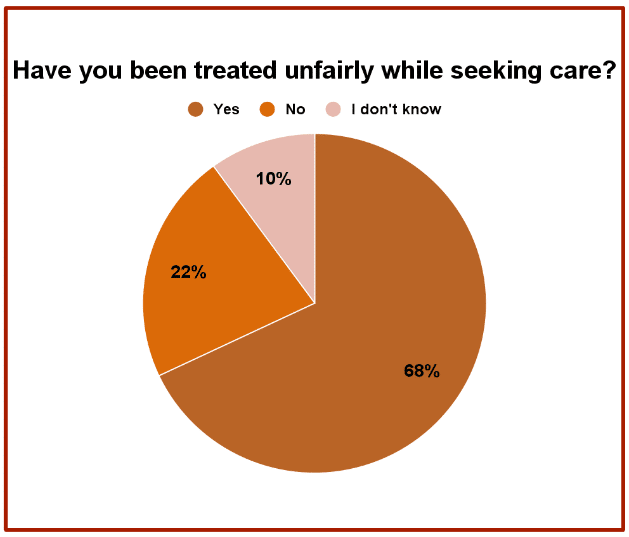Health-Related Quality of Life, Disease Impacts, and Health Equity Survey Summary

Sick Cells collaborated with QC Medica and Vertex Pharmaceuticals to survey patients with sickle cell disease to ask how recurring VOCs impact their quality of life, their families, and their experiences of fair treatment in the healthcare system.
Study Goal
The goal of this study was to identify the impacts of SCD on quality of life among individuals who experience recurrent vaso-occlusive crises (VOCs). These results were presented at the 2022 American Society of Hematology (ASH) Annual Meeting & Exposition.
Study Timeline
These online surveys were administered in 3-month intervals in 2022.
Scope & Methods
The eligibility requirements for this study included participants experiencing two or more VOCs requiring an interaction with a healthcare provider within the two years prior to the study. An interaction with a provider was defined as the administration of a red blood cell transfusion or pain medication.
Results
The study surveyed 142 participants with SCD globally (U.S., U.K., France, Germany, and Italy). The average number of VOCs a year that required an interaction with a healthcare provider was six VOCs. However, almost 70% of the participants reported managing four or more VOCs at home within the past 12 months. Within the past month, 65% of the participants had taken Hydroxyurea to manage their SCD.  In addition to direct pain impacts, survey participants noted additional impacts of SCD on quality of life. There were significant impairments to the ability to work reported during this survey. Almost 50% of the participants were either unemployed or unable to work due to SCD. Individuals able to work reported approximately 10 hours of missed work due to SCD. Additional impacts were noted, including absenteeism (work time missed), presenteeism (impairment at work), productivity loss (overall work impairment), and activity impairment.
In addition to direct pain impacts, survey participants noted additional impacts of SCD on quality of life. There were significant impairments to the ability to work reported during this survey. Almost 50% of the participants were either unemployed or unable to work due to SCD. Individuals able to work reported approximately 10 hours of missed work due to SCD. Additional impacts were noted, including absenteeism (work time missed), presenteeism (impairment at work), productivity loss (overall work impairment), and activity impairment. 

Measurements of societal impacts of SCD and health equity were also included in the survey. A majority of the participants reported they had been treated unfairly while seeking care due to their race (67%) and when requesting more pain medication (65%). Overall, 60% of the participants felt that the healthcare system treats people unfairly based on race or ethnic background.
This survey was made possible through community engagement. Sick Cells would like to thank survey participants and our partnerships, Vertex Pharmaceuticals and QC Medica.
Click the button below to view more information on the ASH publication on the Health-Related Quality of Life, Disease Impacts, and Health Equity Survey.